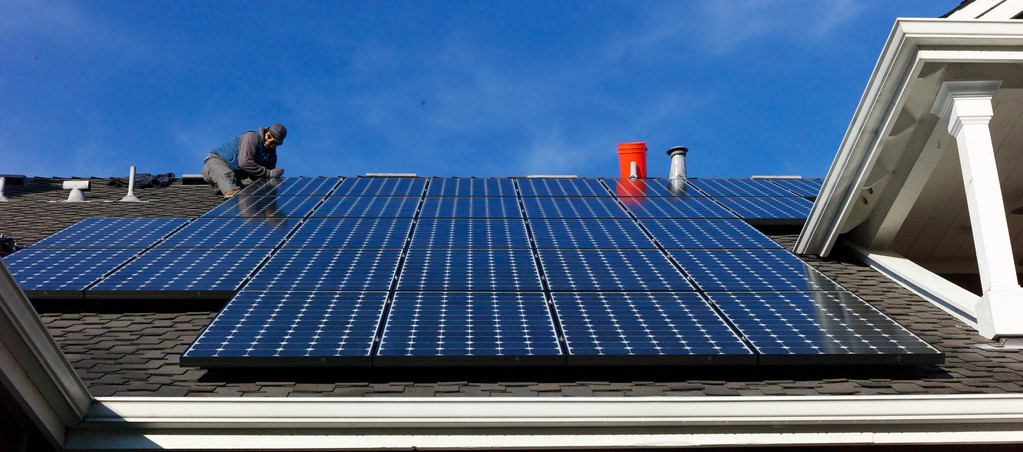Let’s Be Clear: Solar Energy Benefits Everyone
Tuesday, Apr 17 2018

Since the Stone Age, back when Fred Flintstone fought with Barney Rubble, there has been tension between neighbors. Yet the neighborly spat UC Berkeley Professor Lucas Davis recently blogged about shouldn’t be a fight at all. Solar panels aren’t just good for the people who have them — they’re good for everybody.
Davis claims if a neighbor installs solar panels, it will cost him $65/year in higher electric bills, but his math is wrong. Instead of costing him more, it’s very likely those panels are saving Davis money.
So how did Davis get his calculation wrong? First, Davis forgot to factor in the savings he realizes when rooftop solar panels reduce the need to build new transmission and distribution infrastructure. While Davis is correct that utilities have certain fixed costs that we all pay for, he forgets that, in the long run, these costs are not truly “fixed.” The need for them ultimately depends on demand for electricity, and his neighbor’s solar panels can reduce that need.
In fact, just two days before Davis published his analysis, the California Independent System Operator (CAISO) approved a 2-year transmission plan that cancels previously approved transmission projects to the tune of $2.6 billion, which CAISO states was the result of changes in electricity use “strongly influenced by energy efficiency programs and increasing levels of residential rooftop solar generation.” This comes on top of $192 million in savings from projects avoided in 2016. While additional transmission investments will surely be needed to help California reach its clean energy goals, CAISO’s revised plan shows that rooftop solar systems, like the one owned by Davis’ neighbor, are helping save customers billions of dollars.
Rooftop solar, including solar on businesses, government buildings and schools, can save utilities’ and consumers money on other distribution infrastructure costs as well. For example, expensive utility transformers can get overloaded on hot summer days when people are using more energy to cool their homes. Rooftop solar can reduce strain on the system on these days, which extends the life of utility equipment and creates savings for everyone.
Thus, if Mr. Davis is looking for someone to blame for his rising utility bills, he might start by looking in the direction of his electric utility, which lobbies hard for approval of new infrastructure, even when it is shown not to be needed. For example, Southern California Edison recently sought approval for over $2 billion of unnecessary spending on its distribution system, on which it would earn a handsome rate of return, but that ratepayer advocates say would raise rates for everyone. Mr. Davis should view his neighbor as an ally in fighting those costs, not an enemy.
Further, Mr. Davis ignores widely recognized benefits of rooftop solar, including avoided fuel hedging costs created by volatile fossil fuels like natural gas, avoided electricity losses from power plants that are located far away from cities, and avoiding the need to build new expensive natural gas plants.
Finally, Mr. Davis’s logic on avoided energy costs is flawed. Part of the reason wholesale electricity costs just $0.04 per kilowatt hour to generate is that solar and other renewables reduce the state’s reliance on expensive “peaker” generation plants that would drive prices higher if they had to run. To say that solar isn’t worth much because electricity is cheap is like saying your alarm system is worthless because nobody tries to break into your home anymore.
Instead of arguing with his neighbor, Mr. Davis should invite him over for a cold beer chilled with energy that increasingly comes from clean sources, like his neighbor’s solar panels.